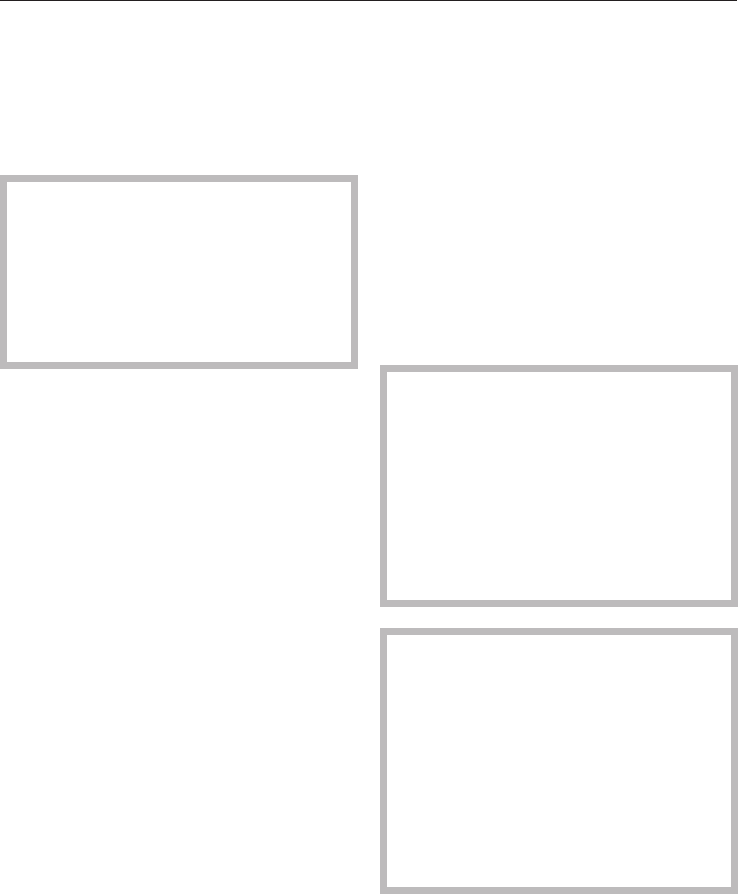
Note
^
Remove coarse food residues from
crockery.
There is no need to rinse items under
running water.
,
Do not wash items soiled with
ash, sand, wax, lubricating grease
or paint in the dishwasher. Ash does
not dissolve and is distributed in the
wash cabinet. Wax, sand, lubricating
grease and paint cause damage to
the dishwasher.
Crockery can be loaded anywhere in
the baskets, but the following notes
should be observed:
^ Do not place crockery and cutlery
inside other pieces where they may
be concealed.
^ Load the crockery so that water can
access all surfaces. This ensures that
it is properly cleaned.
^
Make sure that all items are securely
positioned.
^
Hollow items such as cups, glasses,
pans, etc. must be inverted in the
basket.
^
Tall, narrow, hollow items, e.g.
champagne glasses, should be
placed in the centre of the basket to
ensure better water coverage.
^
Deep based items should be placed
at an angle so that water can run off
them freely.
^
The spray arms must not be blocked
by items which are too tall or hang
through the baskets.
If in doubt, test for free movement by
manually rotating the spray arms.
^
Make sure that small items do not fall
through the holders in the baskets.
Small items, e.g. lids, should
therefore be placed in the cutlery tray
or cutlery basket.
Some foodstuffs may contain natural
dyes, e.g. carrots, tomatoes or
ketchup. Plastic items in the
dishwasher may discolour if large
quantities of these foodstuffs find
their way into the appliance on the
crockery. The stability of plastic
items is not affected by this
discolouration.
When the dishwasher is being
loaded food and drink residue may
drip onto the sides of the
dishwasher door.
These surfaces are outside the wash
cabinet and are not accessed by
water from the spray arms.
Food residue should therefore be
wiped away before the dishwasher
door is closed.
Loading the dishwasher
21


















